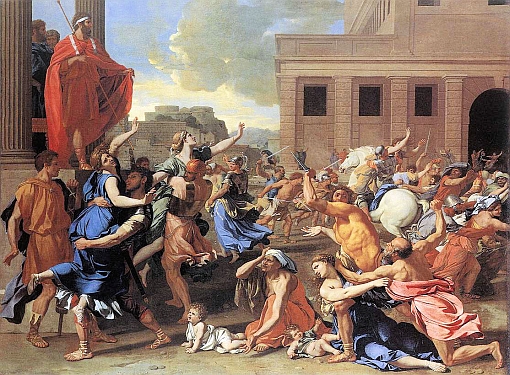
Liberi iam hinc populi Romani res pace belloque gestas, annuos magistratus, imperiaque legum potentiora quam hominum peragam. Quæ libertas ut lætior esset proximi regis superbia fecerat. . .
Quid enim futurum fuit, si illa pastorum conuenarumque plebs, transfuga ex suis populis, sub tutela inuiolati templi aut libertatem aut certe impunitatem adepta, soluta regio metu agitari coepta esset tribuniciis procellis, et in aliena urbe cum patribus serere certamina, priusquam pignera coniugum ac liberorum caritasque ipsius soli, cui longo tempore adsuescitur, animos eorum consociasset? Dissipatae res nondum adultæ discordia forent, quas fouit tranquilla moderatio imperii eoque nutriendo perduxit ut bonam frugem libertatis maturis iam uiribus ferre possent. Libertatis autem originem inde magis quia annuum imperium consulare factum est quam quod deminutum quicquam sit ex regia potestate numeres. Omnia iura, omnia insignia primi consules tenuere; id modo cautum est ne, si ambo fasces haberent, duplicatus terror uideretur.
Henceforth I shall tell the deeds of a people, the Romans, who valued liberty first, and of their accomplishments both in peace and war, the magistracies that passed from year to year–the story of a state in which no man stood above the law. They valued their liberty so much precisely because their last king had been so great a tyrant. . .
For what would have happened, had that crowd of shepherds and strangers, outcast from their own peoples, found, under the protection of an absolute sanctuary, either freedom, or at least impunity for former offences, and, freed from the fear of the king’s authority, had begun to be attracted to the rising power of the tribunes, and had begun to challenge the fathers in a strange city, before the pledges of wives and children, and love for the land itself, to which people become accustomed
only by the passage of time, had united their attentions? Their condition,
not yet matured, would have been destroyed by discord; but the
tranquillizing moderation of the government so fostered their condition, and by proper nourishment brought it to such perfection, that, when their strength was now developed, they were able to bring
forth the wholesome fruits of liberty. The first beginnings of
liberty, however, one may date from this period, and most remarkably they arise from the limitation placed on the consular authority–by its being made annual, rather than a circumscription of the power of the kings. The first consuls kept all the privileges and outward signs of authority, care only being taken to prevent the terror appearing doubled, should both have the fasces at the same time.
—Titus Livius, Ab urbe condita lib ii, cap i (ca. 5 BCE) in: Loeb Library ed. vol. 114, pp. 118-20 (S.H. transl.)


